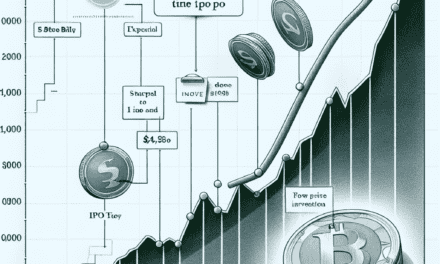“Strategic Patience: Warren Buffett’s Cash Reserve Signals Calculated Caution.”
Introduction
Warren Buffett, the legendary investor and CEO of Berkshire Hathaway, is renowned for his strategic acumen and long-term investment philosophy. In recent years, Buffett’s decision to hold onto a substantial cash reserve has sparked widespread speculation and debate among financial analysts and investors. This approach raises the question: is Buffett’s cash hoarding a sign of fear or a calculated strategic move? While some interpret this as a cautious response to market volatility and economic uncertainty, others view it as a deliberate strategy to capitalize on future investment opportunities. Understanding Buffett’s rationale requires delving into his investment principles, market outlook, and the broader economic landscape, offering insights into whether his cash reserve is a defensive measure or a strategic positioning for potential market shifts.
Understanding Warren Buffett’s Cash Strategy: A Deep Dive
Warren Buffett, often hailed as one of the most successful investors of all time, has long been a subject of fascination for both seasoned investors and novices alike. His investment strategies, characterized by a keen eye for value and a long-term perspective, have consistently yielded impressive returns. However, in recent years, Buffett’s decision to hold onto a significant amount of cash has sparked considerable debate. Is this move driven by fear, or is it a strategic maneuver designed to capitalize on future opportunities?
To understand Buffett’s cash strategy, it is essential to consider the broader economic context. The global economy has been marked by volatility and uncertainty, with factors such as geopolitical tensions, fluctuating interest rates, and the lingering effects of the COVID-19 pandemic contributing to an unpredictable financial landscape. In such an environment, holding cash can be seen as a prudent measure, providing a buffer against potential downturns and offering the flexibility to seize opportunities as they arise.
Moreover, Buffett’s approach to investing is deeply rooted in the principles of value investing, a strategy that emphasizes the importance of purchasing undervalued assets with strong fundamentals. By maintaining a substantial cash reserve, Buffett positions himself to act decisively when market conditions align with his investment criteria. This strategy is not merely about avoiding risk but rather about being prepared to deploy capital when the potential for significant returns presents itself.
In addition to the economic landscape, it is crucial to consider Buffett’s investment philosophy, which prioritizes patience and discipline. Unlike many investors who may be swayed by short-term market trends or the allure of quick profits, Buffett remains steadfast in his commitment to long-term value creation. This perspective allows him to resist the pressure to invest simply for the sake of being invested, instead waiting for opportunities that align with his rigorous standards.
Furthermore, Buffett’s decision to hold cash can also be viewed through the lens of opportunity cost. In a market characterized by high valuations and limited attractive investment options, the opportunity cost of holding cash may be lower than investing in overvalued assets. By preserving capital, Buffett ensures that he is not locked into suboptimal investments, thereby maintaining the ability to capitalize on more favorable opportunities in the future.
It is also worth noting that Buffett’s cash strategy is not a new development. Throughout his career, he has consistently demonstrated a willingness to hold cash during periods of market exuberance, only to deploy it when valuations become more attractive. This approach has served him well in the past, allowing him to acquire high-quality assets at discounted prices during market downturns.
In conclusion, Warren Buffett’s decision to hold onto his cash is not a reflection of fear but rather a strategic choice informed by his investment philosophy and the current economic environment. By maintaining a substantial cash reserve, Buffett positions himself to navigate uncertainty with confidence and capitalize on opportunities that align with his long-term vision. As investors seek to understand his approach, it becomes clear that patience, discipline, and a keen eye for value remain at the core of Buffett’s enduring success.
The Role of Market Volatility in Buffett’s Cash Reserves
Warren Buffett, often hailed as one of the most astute investors of our time, has long been known for his strategic approach to investing. His decision to hold substantial cash reserves, particularly during periods of market volatility, has sparked considerable debate among financial analysts and investors alike. While some may interpret this as a sign of fear, a closer examination reveals a more nuanced strategy at play.
Market volatility, characterized by rapid and unpredictable changes in asset prices, can create an environment of uncertainty that challenges even the most seasoned investors. During such times, many investors may feel compelled to either sell off assets to minimize potential losses or to refrain from making new investments altogether. However, Buffett’s approach diverges from these conventional reactions. By maintaining significant cash reserves, he positions himself to capitalize on opportunities that arise when others are driven by fear.
One of the primary reasons Buffett holds onto cash during volatile periods is to ensure liquidity. In times of market turmoil, liquidity becomes a valuable asset, allowing investors to act swiftly and decisively. Buffett’s cash reserves provide him with the flexibility to make substantial investments without the need to liquidate existing holdings at potentially unfavorable prices. This strategic liquidity enables him to seize opportunities that may not be available to those who are fully invested and lack the necessary cash to act.
Moreover, Buffett’s cash reserves serve as a buffer against the inherent risks associated with market volatility. By maintaining a strong cash position, he mitigates the impact of adverse market movements on his overall portfolio. This conservative approach aligns with his long-standing investment philosophy of prioritizing capital preservation. Rather than succumbing to the pressures of short-term market fluctuations, Buffett remains focused on the long-term potential of his investments, using cash reserves as a safeguard against unforeseen downturns.
In addition to providing liquidity and risk mitigation, Buffett’s cash strategy is also a reflection of his disciplined investment approach. He is known for his patience and willingness to wait for the right opportunities to present themselves. During periods of market volatility, asset prices can become dislocated from their intrinsic values, creating potential bargains for those with the foresight and resources to act. Buffett’s cash reserves allow him to take advantage of these discrepancies, acquiring high-quality assets at attractive prices when others are hesitant to invest.
Furthermore, Buffett’s decision to hold cash during volatile times underscores his belief in the cyclical nature of markets. He understands that periods of volatility are often followed by periods of recovery and growth. By maintaining cash reserves, he positions himself to benefit from the eventual market rebound, deploying capital strategically when conditions are more favorable. This long-term perspective sets him apart from those who may be swayed by short-term market noise.
In conclusion, Warren Buffett’s decision to hold onto cash during periods of market volatility is not a reflection of fear but rather a strategic maneuver rooted in his investment philosophy. By ensuring liquidity, mitigating risk, exercising patience, and capitalizing on market cycles, Buffett demonstrates a level of prudence and foresight that has contributed to his enduring success. His approach serves as a reminder that in the world of investing, sometimes the most strategic move is to wait for the right moment to act.
Strategic Patience: Buffett’s Approach to Investment Opportunities
Warren Buffett, often hailed as one of the most successful investors of all time, has long been known for his strategic patience and disciplined approach to investing. His decision to hold onto a significant amount of cash, rather than deploying it into the market, has sparked considerable debate among financial analysts and investors alike. This approach, while seemingly counterintuitive in a market that often rewards quick action, is deeply rooted in Buffett’s investment philosophy and his understanding of market dynamics.
To comprehend why Buffett is holding onto his cash, it is essential to delve into his investment principles. At the core of Buffett’s strategy is the belief in value investing, which involves identifying undervalued companies with strong fundamentals and holding them for the long term. This approach requires not only a keen eye for potential but also the patience to wait for the right opportunities. In this context, holding cash is not a sign of fear but rather a strategic move to ensure readiness when such opportunities arise.
Moreover, Buffett’s decision to maintain a substantial cash reserve can be seen as a hedge against market volatility. In times of economic uncertainty or market downturns, having cash on hand allows an investor to capitalize on lower asset prices. This is particularly relevant in today’s economic climate, where geopolitical tensions, inflationary pressures, and fluctuating interest rates contribute to market unpredictability. By holding cash, Buffett positions himself to act decisively when the market presents favorable conditions, thereby maximizing potential returns.
Additionally, Buffett’s cautious approach reflects his understanding of the broader economic landscape. He is acutely aware of the cyclical nature of markets and the potential for economic downturns. By maintaining liquidity, he ensures that Berkshire Hathaway, his conglomerate, remains resilient in the face of economic challenges. This financial flexibility not only safeguards the company but also provides the agility to make strategic acquisitions when competitors may be constrained by tighter financial conditions.
Furthermore, Buffett’s cash-holding strategy underscores his commitment to disciplined investing. In a market environment characterized by speculative behavior and short-term gains, Buffett’s approach serves as a reminder of the importance of long-term thinking. His willingness to wait for the right investment opportunities, rather than succumbing to the pressure of deploying capital hastily, exemplifies a level of discipline that has been instrumental in his success.
It is also worth noting that Buffett’s decision to hold cash is not an isolated strategy but rather a component of a broader investment framework. His focus on acquiring businesses with strong competitive advantages, capable management, and sustainable growth prospects remains unchanged. The cash reserve, therefore, acts as a strategic tool that complements his overarching investment philosophy.
In conclusion, Warren Buffett’s decision to hold onto his cash is a testament to his strategic patience and disciplined approach to investing. Far from being a fearful response to market conditions, it is a calculated move that aligns with his long-standing investment principles. By maintaining liquidity, Buffett not only positions himself to seize opportunities in times of market volatility but also reinforces the importance of long-term thinking in achieving sustainable investment success. As such, his approach serves as a valuable lesson for investors seeking to navigate the complexities of the financial markets with prudence and foresight.
Economic Uncertainty and Buffett’s Cash Holdings
Warren Buffett, the legendary investor and CEO of Berkshire Hathaway, has long been a subject of fascination for both financial experts and the general public. His investment strategies are often scrutinized and emulated, and his decisions can send ripples through the stock market. Recently, Buffett’s substantial cash holdings have sparked discussions and debates about whether his approach is driven by fear or strategic foresight. As of the latest reports, Berkshire Hathaway is sitting on a cash pile exceeding $140 billion, a figure that has steadily grown over the past few years. This accumulation of cash raises questions about Buffett’s perspective on the current economic climate and his future investment plans.
To understand Buffett’s rationale, it is essential to consider the broader context of economic uncertainty that has characterized recent years. The global economy has been grappling with a myriad of challenges, including the lingering effects of the COVID-19 pandemic, geopolitical tensions, and fluctuating interest rates. These factors contribute to a volatile market environment, making it difficult for investors to predict future trends with confidence. In such a landscape, holding onto cash can be seen as a prudent move, providing a buffer against unforeseen economic shocks and offering the flexibility to seize opportunities when they arise.
Moreover, Buffett’s investment philosophy has always emphasized value investing, a strategy that involves identifying undervalued assets with strong long-term potential. In a market where asset prices are often inflated, finding such opportunities can be challenging. By maintaining a significant cash reserve, Buffett positions himself to act decisively when market corrections occur, allowing him to acquire valuable assets at a discount. This approach aligns with his famous adage: “Be fearful when others are greedy and greedy when others are fearful.” In times of economic uncertainty, this strategy can be particularly advantageous, enabling Buffett to capitalize on market downturns while minimizing risk.
Additionally, the current interest rate environment plays a crucial role in Buffett’s decision to hold cash. With interest rates at historically low levels, the returns on cash and cash-equivalent investments are minimal. However, low interest rates also mean that borrowing costs are reduced, potentially leading to increased corporate debt levels and inflated asset prices. In such a scenario, having cash on hand provides a competitive edge, allowing Buffett to avoid overleveraging and to invest in opportunities that offer genuine value rather than being driven by cheap credit.
Furthermore, Buffett’s cautious approach may also reflect his concerns about inflationary pressures. As governments worldwide have implemented expansive fiscal policies to stimulate economic recovery, the risk of inflation has become a topic of concern for many investors. Holding cash can serve as a hedge against inflation, preserving purchasing power and enabling strategic investments in inflation-resistant assets when the time is right.
In conclusion, Warren Buffett’s decision to hold onto his substantial cash reserves can be viewed as a strategic maneuver rather than a reactionary response to fear. By maintaining liquidity, he positions himself to navigate the complexities of an uncertain economic landscape, ready to capitalize on opportunities that align with his value investing principles. As the global economy continues to evolve, Buffett’s approach serves as a reminder of the importance of patience, prudence, and strategic foresight in the world of investing.
Historical Precedents: Buffett’s Cash Strategy in Past Crises
Warren Buffett, often hailed as one of the most astute investors of our time, has long been known for his strategic approach to cash management, particularly during periods of economic uncertainty. Historically, Buffett’s decision to hold onto cash has been a hallmark of his investment strategy, allowing him to capitalize on opportunities when markets are in turmoil. This approach is not born out of fear but rather a calculated strategy that has been honed over decades of experience. By examining past crises, we can gain insight into why Buffett’s cash strategy remains a cornerstone of his investment philosophy.
During the financial crisis of 2008, Buffett’s decision to maintain a substantial cash reserve proved to be a masterstroke. As markets plummeted and panic ensued, Buffett’s Berkshire Hathaway was in a position to make significant investments in companies that were undervalued due to the prevailing economic conditions. For instance, his investments in Goldman Sachs and General Electric during this period were made possible by the liquidity he had preserved. These moves not only provided Berkshire with lucrative returns but also reinforced Buffett’s reputation as a savvy investor who thrives in times of crisis.
Transitioning to the dot-com bubble of the late 1990s and early 2000s, Buffett’s cash strategy once again demonstrated its efficacy. While many investors were swept up in the euphoria of rapidly rising tech stocks, Buffett remained cautious, opting to hold onto his cash rather than invest in what he perceived as overvalued companies. When the bubble eventually burst, many of those who had invested heavily in tech stocks suffered significant losses. In contrast, Buffett’s patience and prudence allowed him to deploy his cash reserves into more stable and undervalued assets, further solidifying his investment acumen.
Moreover, Buffett’s approach to cash management is deeply rooted in his understanding of market cycles and human psychology. He recognizes that markets are inherently volatile and that periods of irrational exuberance are often followed by corrections. By maintaining a robust cash position, Buffett ensures that he is not only protected during downturns but also ready to seize opportunities when they arise. This strategic foresight is a testament to his belief in the adage that “cash is king,” particularly when others are forced to sell assets at distressed prices.
In addition to these historical precedents, Buffett’s cash strategy is also informed by his long-term investment horizon. Unlike many investors who may be swayed by short-term market fluctuations, Buffett remains focused on the bigger picture. His ability to weather economic storms and emerge stronger is a reflection of his commitment to value investing and his unwavering confidence in the resilience of the American economy.
In conclusion, Warren Buffett’s decision to hold onto cash during past crises is not an indication of fear but rather a strategic maneuver that has consistently yielded positive outcomes. By examining his actions during the financial crisis of 2008 and the dot-com bubble, it becomes evident that Buffett’s cash strategy is a deliberate and well-considered approach to navigating economic uncertainty. As markets continue to evolve, Buffett’s historical precedents serve as a valuable lesson in the importance of maintaining liquidity and exercising patience in the face of adversity.
The Influence of Interest Rates on Buffett’s Cash Decisions
Warren Buffett, the legendary investor and CEO of Berkshire Hathaway, is renowned for his strategic acumen and long-term investment philosophy. His recent decision to hold onto a substantial amount of cash has sparked considerable debate among financial analysts and investors alike. This decision, while seemingly conservative, is deeply influenced by the prevailing interest rate environment, which plays a crucial role in shaping Buffett’s investment strategies.
Interest rates, set by central banks, are a fundamental component of the economic landscape, influencing everything from consumer spending to corporate investment. In recent years, the global economy has experienced a prolonged period of low interest rates, a scenario that has significant implications for investors like Buffett. Low interest rates typically reduce the cost of borrowing, encouraging businesses to invest and expand. However, they also lead to lower yields on fixed-income investments, such as bonds, which traditionally form a significant part of conservative investment portfolios.
For Buffett, the decision to hold onto cash rather than deploy it into new investments can be seen as a strategic response to these low interest rates. With bond yields offering minimal returns, the opportunity cost of holding cash is relatively low. This allows Buffett to maintain liquidity and flexibility, positioning himself to capitalize on more lucrative opportunities that may arise in the future. Furthermore, holding cash provides a buffer against market volatility, enabling Berkshire Hathaway to weather economic downturns without being forced to liquidate assets at unfavorable prices.
Moreover, the current interest rate environment has led to inflated asset valuations across various sectors. With cheap borrowing costs, investors have been willing to pay higher prices for stocks and real estate, driving up valuations to levels that some, including Buffett, may consider unsustainable. By holding cash, Buffett avoids overpaying for assets in a potentially overheated market, adhering to his principle of investing only when there is a clear margin of safety.
In addition to these considerations, Buffett’s cash strategy is also influenced by the potential for future interest rate hikes. Central banks may raise interest rates to combat inflation or stabilize economic growth, which could lead to a decline in asset prices. By maintaining a cash reserve, Buffett is strategically positioned to take advantage of such market corrections, acquiring high-quality assets at more attractive valuations.
Furthermore, the influence of interest rates on Buffett’s cash decisions is not solely about the present economic conditions but also about anticipating future trends. Buffett’s long-term perspective allows him to consider the broader economic cycle, recognizing that today’s low interest rates may not persist indefinitely. This foresight enables him to prepare for a range of scenarios, ensuring that Berkshire Hathaway remains resilient and adaptable in the face of changing economic dynamics.
In conclusion, Warren Buffett’s decision to hold onto cash is a strategic maneuver deeply rooted in the current interest rate environment. By prioritizing liquidity and flexibility, he positions himself to navigate the complexities of an evolving economic landscape. While some may view this approach as overly cautious, it reflects Buffett’s commitment to prudent risk management and his unwavering focus on long-term value creation. As interest rates continue to influence global markets, Buffett’s cash strategy serves as a testament to the importance of adaptability and foresight in successful investing.
Comparing Buffett’s Cash Strategy with Other Investment Gurus
Warren Buffett, often hailed as one of the most successful investors of all time, has long been known for his strategic approach to investing. His decision to hold onto a significant amount of cash has sparked considerable debate among financial analysts and investors alike. While some view this as a cautious move driven by fear of market volatility, others see it as a calculated strategy that sets him apart from other investment gurus. To understand Buffett’s cash strategy, it is essential to compare it with the approaches of other prominent investors and explore the underlying reasons for his choices.
Buffett’s preference for maintaining a substantial cash reserve is not a new phenomenon. Historically, he has emphasized the importance of liquidity, which allows him to seize opportunities when they arise. This approach contrasts with the strategies of other investment titans, such as Ray Dalio and Carl Icahn, who often deploy their capital more aggressively. Dalio, for instance, is known for his diversified portfolio and risk parity strategy, which aims to balance risk across various asset classes. Icahn, on the other hand, is famous for his activist investing, where he takes significant stakes in companies to influence their management and strategic direction. Both investors tend to keep less cash on hand, preferring to have their capital actively working in the market.
The rationale behind Buffett’s cash-heavy strategy can be attributed to several factors. Firstly, Buffett’s investment philosophy is deeply rooted in value investing, a principle he inherited from his mentor, Benjamin Graham. This approach involves identifying undervalued companies with strong fundamentals and holding them for the long term. By keeping cash reserves, Buffett positions himself to act swiftly when such opportunities present themselves, especially during market downturns when asset prices are more likely to be undervalued. This patience and discipline have been key to his success, allowing him to make significant acquisitions during times of economic distress.
Moreover, Buffett’s cautious stance can also be seen as a response to the current economic climate. With global markets experiencing heightened volatility due to geopolitical tensions, inflationary pressures, and the lingering effects of the COVID-19 pandemic, maintaining liquidity provides a buffer against uncertainty. In contrast, other investors may view these conditions as opportunities to capitalize on short-term market movements, employing strategies that involve higher risk and potentially higher returns. However, Buffett’s long-term perspective and aversion to unnecessary risk align with his belief that preserving capital is as important as generating returns.
Furthermore, Buffett’s cash strategy reflects his skepticism towards certain market trends and asset classes. For instance, he has been vocal about his reservations regarding cryptocurrencies and speculative investments, which have attracted significant attention from other investors. By holding cash, Buffett avoids exposure to these volatile markets, instead focusing on investments that align with his principles of stability and intrinsic value.
In conclusion, Warren Buffett’s decision to hold onto his cash is not merely a reaction to fear but a strategic choice that underscores his investment philosophy. By comparing his approach with those of other investment gurus, it becomes evident that Buffett’s emphasis on liquidity, value investing, and risk management sets him apart in the financial world. While some may question the prudence of holding large cash reserves in a low-interest-rate environment, Buffett’s track record suggests that his strategy is both deliberate and effective. As market conditions continue to evolve, it remains to be seen how this approach will fare in the long run, but for now, it serves as a testament to Buffett’s enduring wisdom and foresight in the realm of investing.
Q&A
1. **Question:** Why is Warren Buffett holding onto a large amount of cash?
– **Answer:** Warren Buffett is holding onto cash as a strategic move to be prepared for potential investment opportunities during market downturns.
2. **Question:** Is Warren Buffett’s cash reserve a sign of fear?
– **Answer:** No, it is not necessarily a sign of fear; it reflects a cautious and opportunistic investment strategy.
3. **Question:** How does Buffett’s cash strategy align with his investment philosophy?
– **Answer:** Buffett’s strategy aligns with his philosophy of being patient and waiting for the right opportunities to buy undervalued assets.
4. **Question:** What role does market volatility play in Buffett’s decision to hold cash?
– **Answer:** Market volatility increases the likelihood of finding attractive investment opportunities, making cash reserves valuable.
5. **Question:** How does Buffett’s cash position affect Berkshire Hathaway’s financial flexibility?
– **Answer:** The cash position provides Berkshire Hathaway with significant financial flexibility to make large acquisitions or investments quickly.
6. **Question:** What historical events support Buffett’s strategy of holding cash?
– **Answer:** Historical events like the 2008 financial crisis demonstrate how having cash on hand allowed Buffett to make lucrative investments when others were constrained.
7. **Question:** How might Buffett’s cash strategy impact investor confidence in Berkshire Hathaway?
– **Answer:** While some investors may be concerned about missed opportunities, others may view the cash reserve as a prudent measure that enhances long-term stability and potential for growth.
Conclusion
Warren Buffett’s decision to hold onto cash is primarily strategic rather than fearful. Known for his value investing philosophy, Buffett prefers to wait for opportune moments when market valuations align with his criteria for investment. Holding cash provides him with the flexibility to act decisively when such opportunities arise, particularly during market downturns or periods of economic uncertainty. This approach allows him to capitalize on undervalued assets and companies, ensuring long-term growth and returns for Berkshire Hathaway. Therefore, Buffett’s cash reserves are a strategic tool, enabling him to maintain a strong position in the market and seize advantageous investments when they present themselves.





